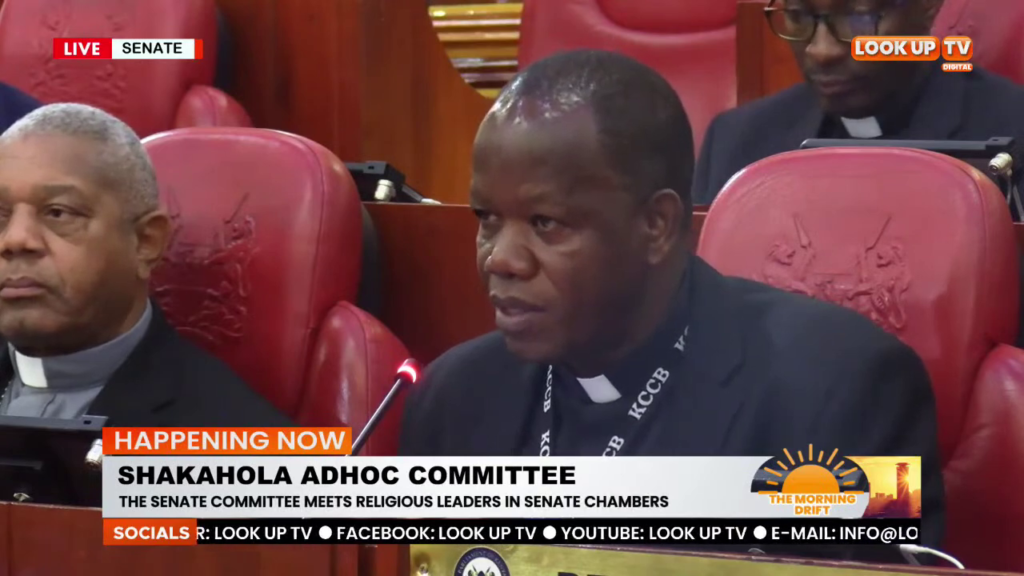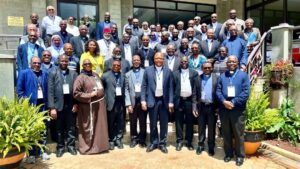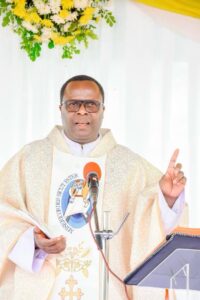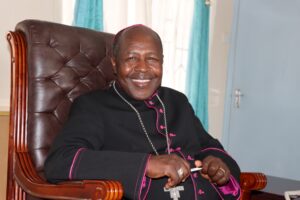KENYA: Regulation of Religion Risks Manipulation: Committee Investigating Cultic Movement Told

Credit: Courtesy photo
Sr. Jecinter Antoinette Okoth, FSSA
Religious leaders in Kenya at their recent meeting with the senate ad-hoc committee mandated to investigate the proliferation of religious organizations in the country, have noted that the idea on regulation of religions may lead to exploitation of religious organization especially by politicians.
The Head of State President William Ruto in the month of May appointed an inquiry commission including Archbishop Maurice Muhatia Makumba of the Kenya conference of Catholic Bishops (KCCB), to probe on a controversial religious movement that was detected recently in Kenya after some followers of a one Pastor Paul Mackenzie were discovered to starve to death.
In the meeting with ad-hoc committee members on Friday, June 9, religious representatives from various churches appreciated the engagements between the Church and the State in the promotion of the common good of the people especially in the integral development.
Speaking on behalf of KCCB Chairman Archbishop Martin Kivuva Musonde of Kenya’s Mombasa Archdiocese, the chairman of the inter-religious dialogue and ecumenism commission of the conference Bishop Willybard Kitongo Lagho presented a memorandum which highlighted the concerns of the Catholic Church and recommendations towards the investigation of the proliferation of religious organizations.
According to the message read by Bishop Lagho, regulation of Churches by some governments has had “disastrous consequences,” a situation which the country may not wish follow and have the same experience.
He gave example of some countries including Eritrea, Democratic Republic of Congo and Tunisia among others where the government invested in regulations of religions which ended up not being successful.
Bishop Lagho narrated that, “While the country (Kenya) has witnessed so many attacks and killings as a result of violent religious extremes, the religious affiliation of the perpetrators has never been in question, rather they were dealt with as isolated cases by individual and criminal groups.”
In this case as a matter of concern, the government need to realize that investing in regulations of religions may pose “risk of politicization and manipulation of religion.”
“Having carefully made a comparative study of countries where government has invested in regulation of religious organizations, we want to convince this committee and ourselves that efforts towards regulations of religious organizations in Kenya will very likely open the different religions to manipulation by different groups especially politicians who will likely attempt to control the activities of the various religions to fit their interest,” the Local Ordinary of Malindi Diocese read part of the memorandum.
The Catholic Church therefore shared their recommendation on the concerned matter saying, “Considering that there was massive security failure in preventing Shakahola Massacre, and that the same government has lost the moral authority to investigate the matter, we call on the government to make deliberate efforts to restore public trust which has been massively eroded by the Shakahola Massacre.”
Additionally, the government need to collaborate more with the different umbrella bodies of the religious organizations in Kenya “for the purposes of promoting a collaborative self-regulating mechanism by religious organizations,” the collective message from KCCB read stressing that such collaborations require reference to umbrella bodies before any religious group is registered.”
Besides members of KCCB who were represented in the meeting, other Church leaders were from the National Council of Churches of Kenya (NCCK) and Evangelical Alliance of Kenya (EAK).
On his part, Dr. Nelson Makanda representing the EAK stressed that the controversial religious movement by pastor Mackenzie is a criminal case and should be handled as such and that self-proclaimed pastor should be held accountable by other bodies and leaders.
“The Shakahola case should not be generalized but treated as a separate and exclusive incidence even though grievous,” Dr Makanda said and proposed the need to separate regulation of religious bodies from the provisions of the Societies Act, 1968.


